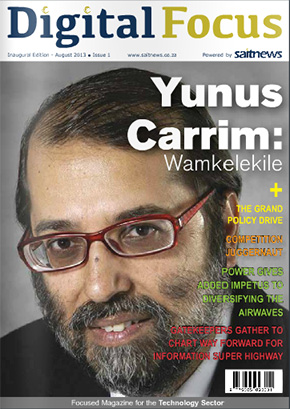A social strategy is meaningless without measurement
Today, social media isn’t just an experiment, but a fast-maturing sales, marketing and customer support channel.
celeration” src=”http://saitnews.co.za/wp-content/uploads/2012/10/Richard_Acceleration.jpg” alt=”" width=”300″ height=”350″ /> Organisations should no longer imagine that a half-hearted effort to listen to Twitter and Facebook conversations.
Social media has evolved at breakneck speed over the past three years, and many marketers are battling to keep up with it.
Today, social media isn’t just an experiment, but a fast-maturing sales, marketing and customer support channel. This implies that organisations should no longer imagine that a half-hearted effort to listen to Twitter and Facebook conversations and broadcast content to their communities is good enough.
For social media to deliver real business value, it needs to be accountable and measureable. What this means in practice is that organisations need to start investing in the tools that will allow them to track and measure how successful they are in engaging the audience, eliciting specific customer behaviours, and delivering tangible business value.
The first step towards putting the analytics tools in place that allow a company to measure social media’s impact in a meaningful way is to consider what exactly should be measured. Many brands start out from the wrong starting point – thinking that value lies in fans, followers, likes or retweets.
These metrics are useful, but they are simply part of the picture. What marketers really want to know is how their social media engagement impacts on their strategic goals. It’s about measurement in alignment with business KPIs.
For example, do their engagements drive high-quality traffic to their Web site, resulting in customer acquisition? Or do their social media interventions help marketers to retain existing customers and grow their sales with them? And how do social media channels interact with the rest of their digital marketing engagements to drive customer behaviour?
Getting to these answers is complex and challenging. It involves understanding hard-to-measure metrics like the influence of the people talking about the brand. It means one needs to understand links between social and other channels – for example, how do social media interactions impact on the search terms customers use? How does one model attribution when social media, search and display may have all impacted a customer conversion?
This all implies that marketers who are serious about social media need to start thinking about data architectures and analytics tools. It is a complex and specialist field, and it may demand some investment in skills and technology to do it right. But the value can be immense.
With the right set of tools and processes in place, marketers can get real-time insights about their customers as they interact with the brand as a whole, from social media content to digital advertising to the website. They can measure what is working and what is not.
And, importantly, they can demonstrate where the value of social media lies to the CEO or the exco – right down to attribution and conversion. There is no tool more powerful for justifying spending on social media than hard numbers that prove it is worth every penny.
By Richard Mullins, director at Acceleration










